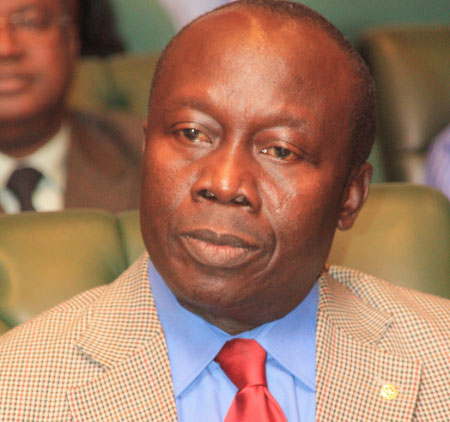
Janjangbureh, the administrative capital of the Central River Region, played host to the first-ever National Farmers’ Conference, which got underway Tuesday with a call by farmers for more investment in agricultural development in the country. The two-day high level meeting brought together over 200 farmers’representatives from across the country, development partners within the UN system, media, and CSOs among others.
Organised by the government through the ministry of Agriculture with support from the office of the UN Food and Agriculture Organization (FAO) in
It was also meant to sensitize farmers on the development processes in the country, particularly the various policy and programme frameworks covering the ANR sector.
Coming on the heels of last year’s crop failure, the conference was designed to determine the nature and scope of interest, priorities, challenges, needs and requirements of various farmers, associations and bodies, as well as their expectations from government and other support sources.
Officially declaring the conference open on behalf of the Vice President was the attorney general and minister of Justice, Lamin Jobarteh, who said the positive response by farmers to the conference demonstrated their interest, commitment and willingness to discuss and find solutions to priority issues that impede the ARN sector from perfuming as desired.
“This government has always pursued two clear over-arching goals for this country’s prosperity: sustainable human development and the highest living standards possible for people,” Jobarteh stated.
According to him, a number of strategies have been established and are in various stages of finalization and implementation to achieve these, among them the Vision 2020, Poverty Reduction Strategy Paper (PRSP) I and II, MDGs, and presently the Programme for Accelerated Growth and Employment (PAGE).
Underscoring the importance of the Agriculture and Natural Resources (ANR) sector in the Gambian economy, Jobarteh added that “as a government, we have always placed agriculture at the highest level of the agenda of priorities in national development.”
This decision was not taken by chance, but by overwhelming evidence of the role and contributions that the sector has been, is and will be making to the economy and development of the country, he went on.
He noted that government is also aware of, and fully recognized the rich potentials the ANR sector possesses to meet urgent, medium and longer term demands for accelerate growth of the economy.
Speaking earlier, the minister of agriculture, Solomon Owens, described the agriculture and natural resources sector as the largest and most sensitive in the country presently, because of its role as a livelihood provider for over 70% of the people in country and a supplier of over 50% of the national food requirement.
“The sector has the greatest potential to turn the fortunes of this country around, from net importers to net exporters of food, and sustain the achievements of the new era,” Owens added.
This, he went on, is because the sector possesses sustainable natural resources (human, land, soil, water, livestock, marine, forest and wild life) as well as diversified production base, with measurable comparative advantages to produce quality commodities for high value markets both within the country and for export.
According to him, government has been consistently providing support to the sector in every national development framework it has established in the last ten years, including the PRSP I and II.
The FAO representative in


